VIDYABEN SHAH & MANUBHAI SHAH
Culture, Administration, Institutions
Inter-cultural activities – – Welfare of Gujaratis
Vidyaben was President of Shree Delhi Gujarati Samaj for
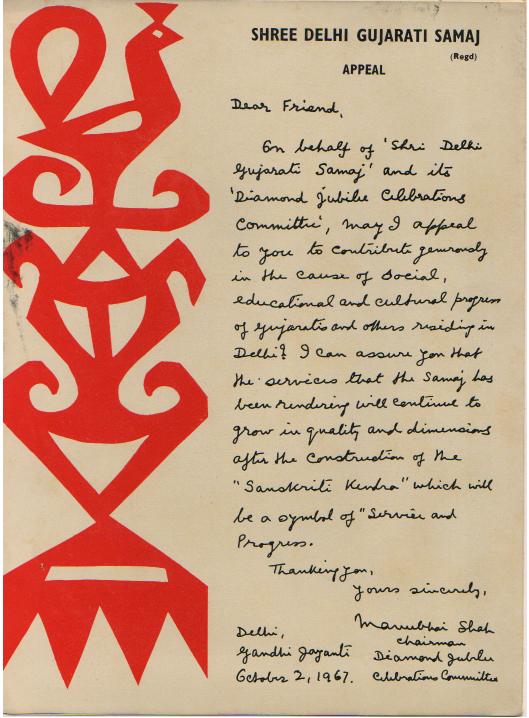
When Vidyaben had completed the task of conceptualising the design of the Sardar Vallabhbhai Bhavan (guest house) and the Mahatma Gandhi Sanskritik Kendra (cultural centre), and raising funds for these institutions, Shri K M Munshi and Shri Morarji Desai complimented her on her "remarkable achievements" and cited her efforts as exemplary for future generations to come.
Institution builder in fine arts and culture
Vidyaben played the most pioneering role in the establishment in Delhi of the Triveni Kala Sangam, a premier institution for imparting training in dance, music and painting. She did a significant proportion of the fundraising for the construction of this renowned institution and has been the President of Triveni Kala Sangam for nearly six decades, while the institution was very ably run by its distinguished and creative Founder Director Sundari Shridharani. Vidyaben and Sundari Shridharani were inseparable. Their unique partnership and friendship of nearly sixty years ended with the passing away of Mrs Shridharani in 2012.
In the 1960s Vidyaben was the President of the Indian National Theatre founded by Smt Sheila Bharat Ram and which was based at what is now the Shri Ram Centre for Performing Arts in New Delhi. The friendship between Vidyaben and Shielaji is legendary since the time Manubhai was working for Lala Shri Ram in the 1940s.
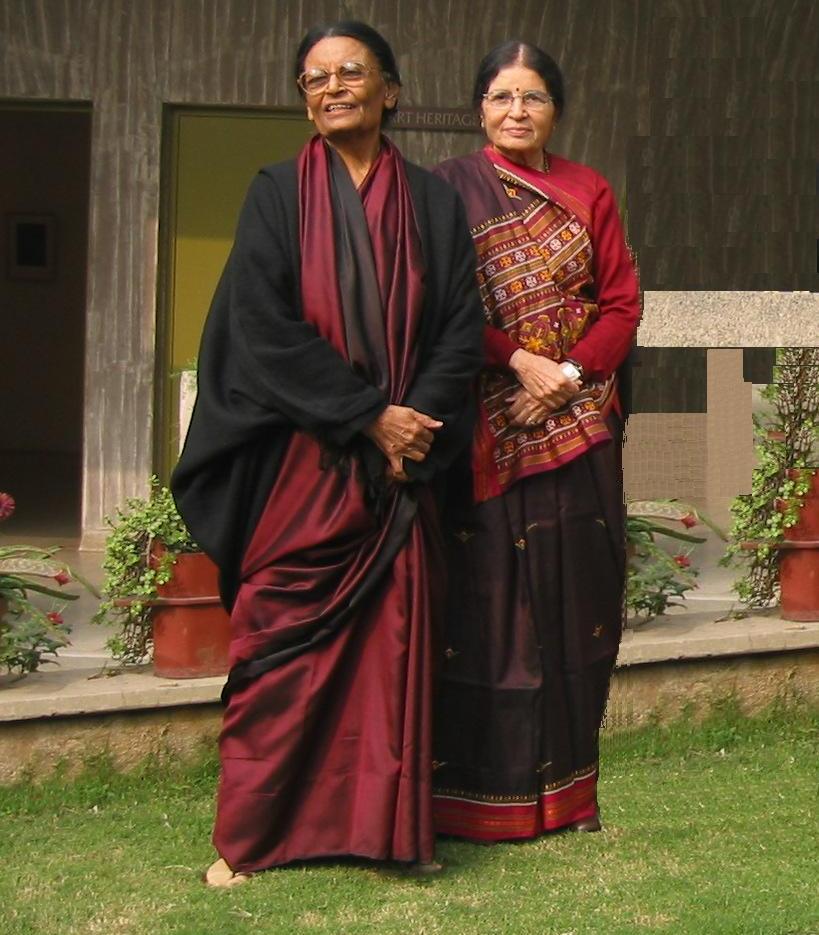
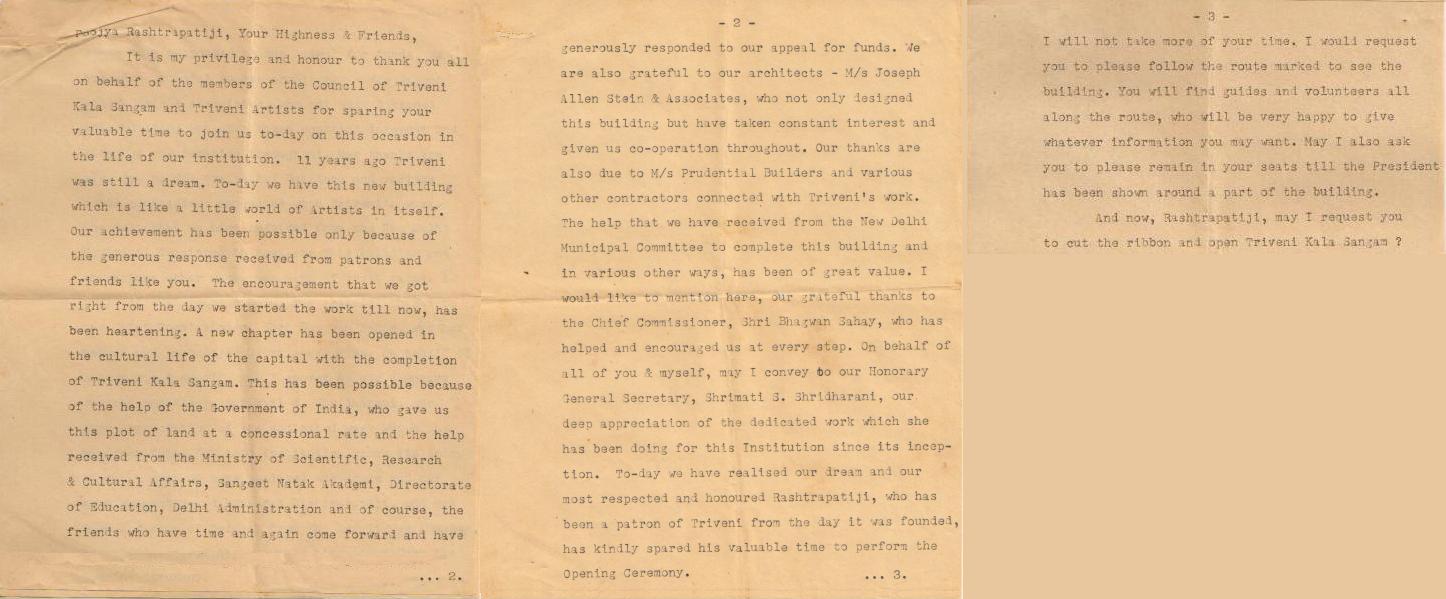
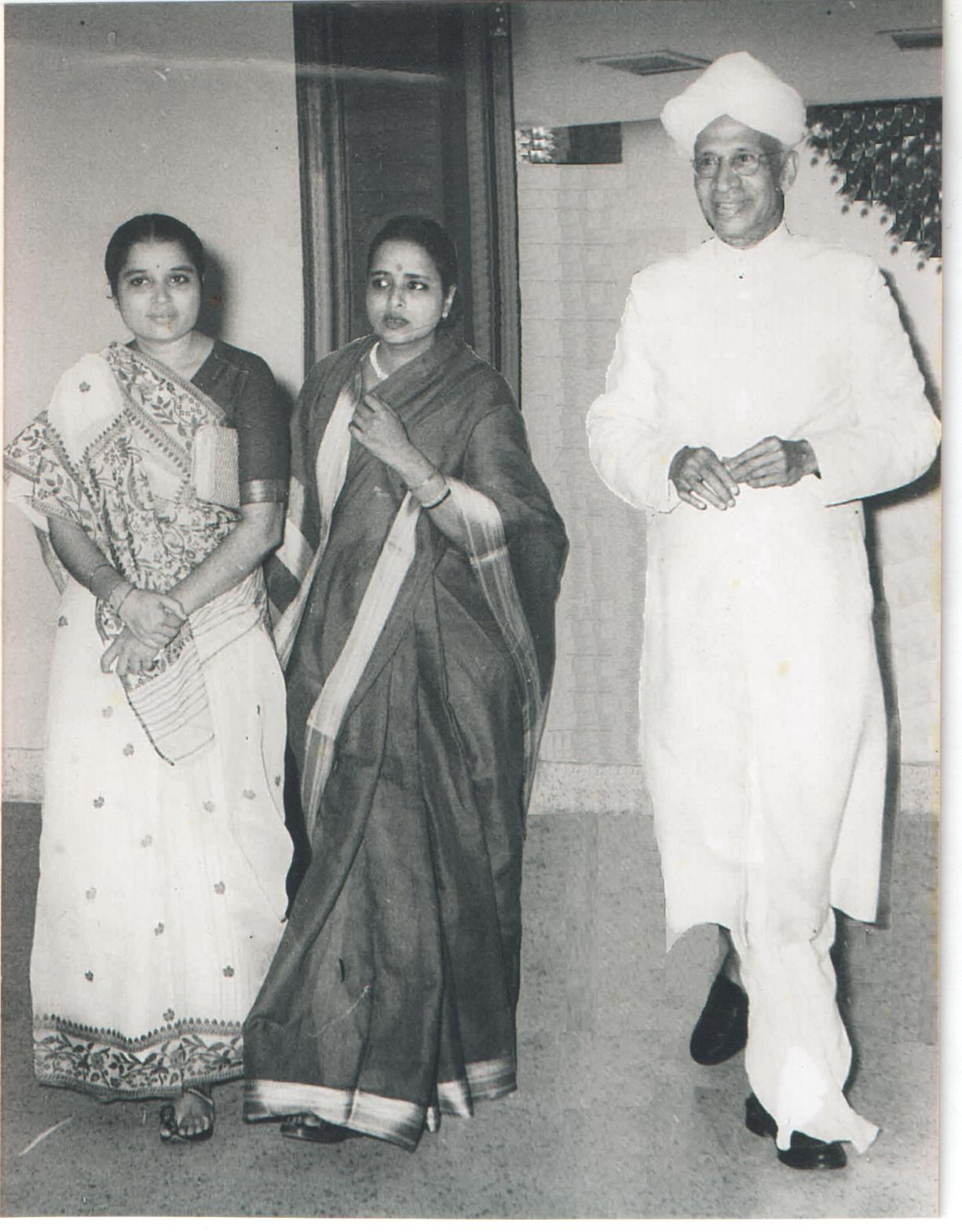
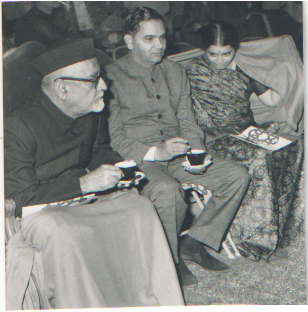
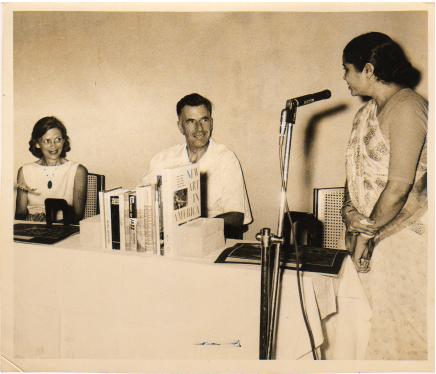
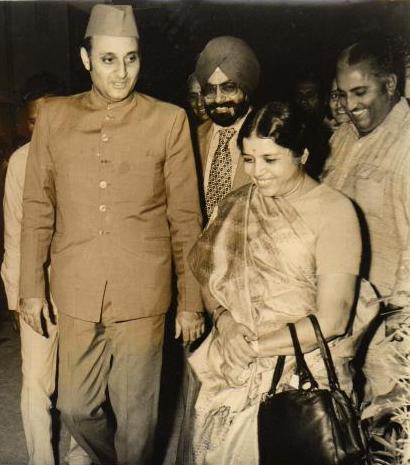
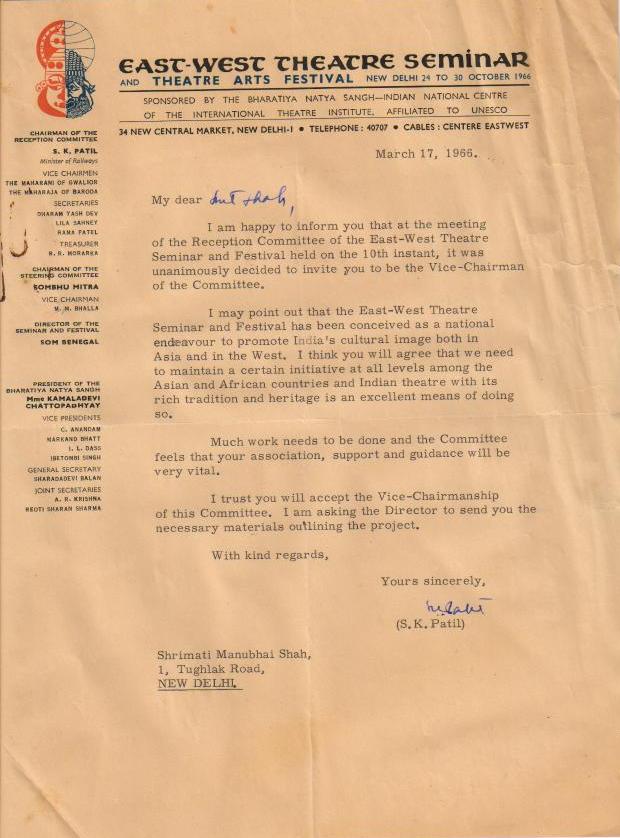
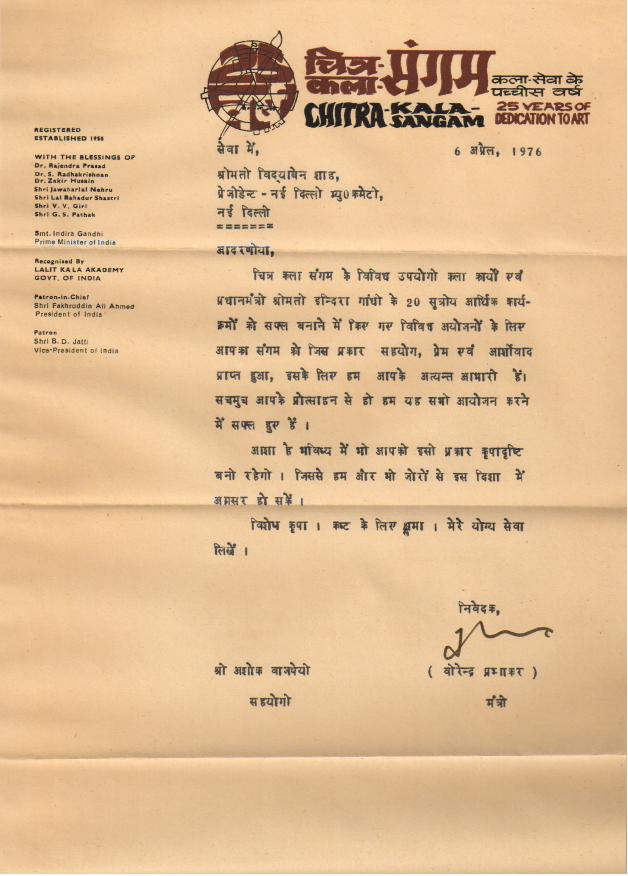
Civic administration
While Vidyaben was already serving as Vice-President, she was appointed the first non-officio President of the New Delhi Municipal Council (NDMC) in 1975. In the book Women's Rights and World Development, the authors state that "Vidyaben's appointment was hailed as a triumph in International Women's Years as it was rare for a woman to be appointed to such a high post normally reserved for a high official of the administration." [1] As President of NDMC, Vidyaben was instrumental in starting a large number of projects for the amelioration of the economically weaker sections of the Delhi society, particularly slum children and women. These projects include home for destitute children, home for abandoned children, hostels for working women, and the rehabilitation centre for the mentally challenged.
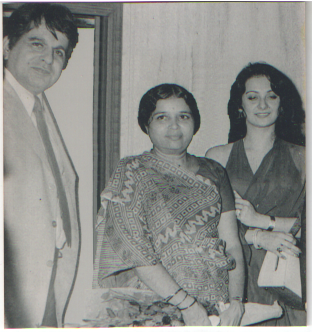
Vidyaben was responsible for initiating the concept of Navyug Schools that has proved a landmark in the educational field for gifted children from the economically weaker sections of society. She also worked to improve the civic amenities and essential services of a rapidly growing metropolitan area of Delhi, to beautify it and make life comfortable for the citizens of Delhi. At the same time, she took up modernisation initiatives such as establishing a new office complex for the NDMC, housing blocks for its employees, and many commercial and shopping complexes. Under her leadership, the long row of shops on Janpath was redesigned and aesthetically beautified. Fifty years later the shopkeeprs still remember her for making Janpath an outstanding showpiece for Delhi the capital of India.
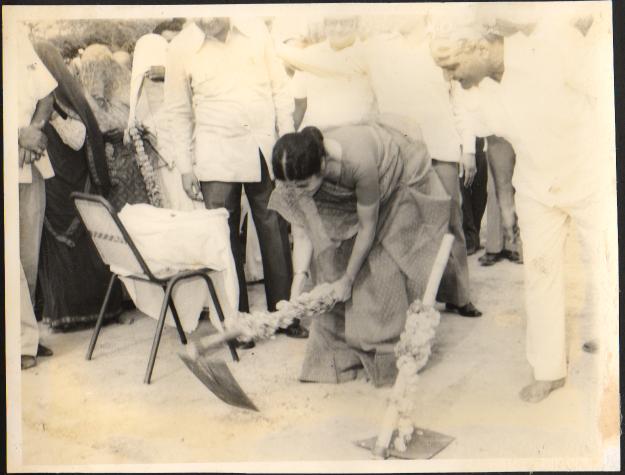
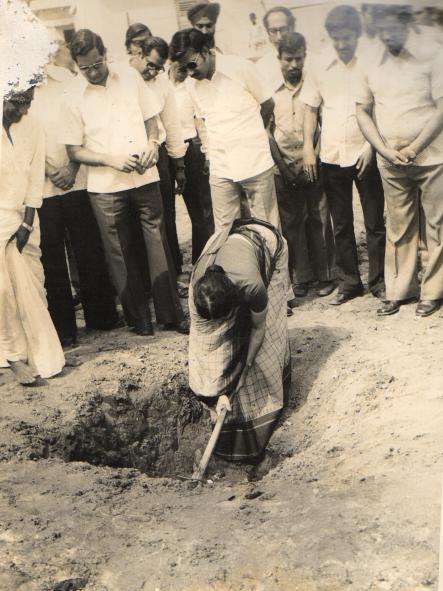
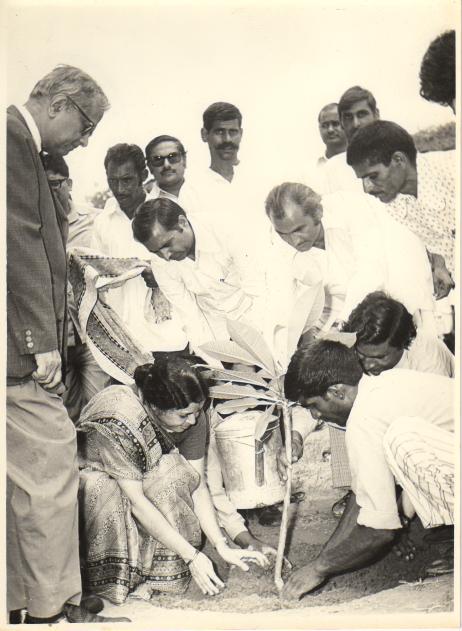
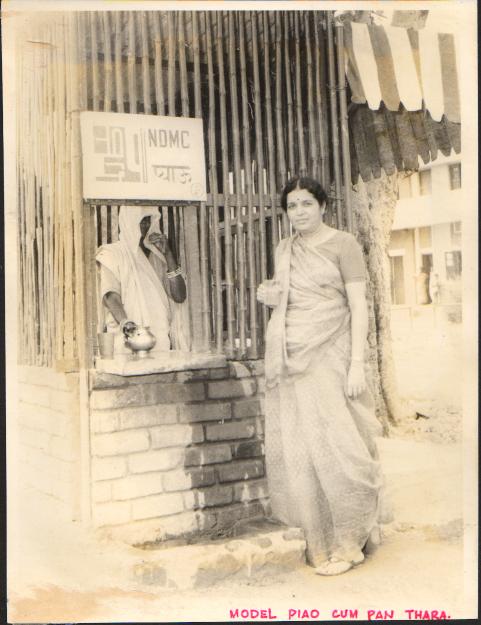
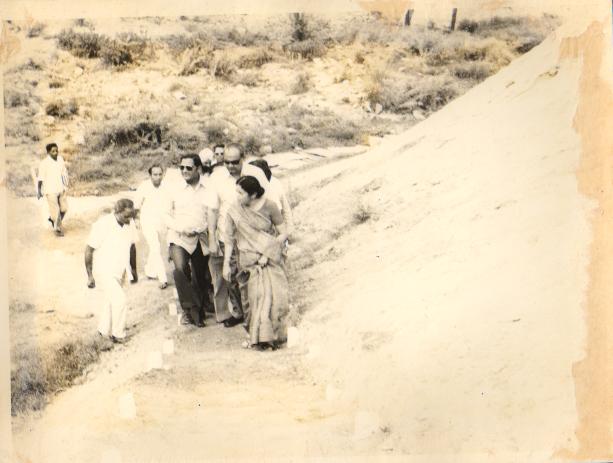
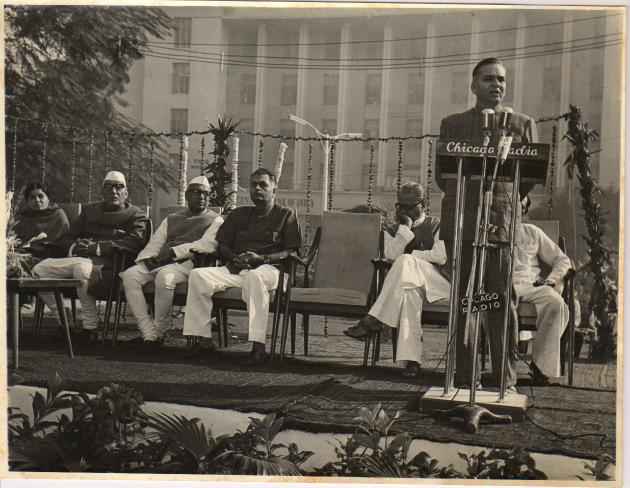
Social activism
In response to the national calamity due to the drought of 1965 and the Indo-Pak war, Vidyaben collected funds and other items and donated them to the Citizen's Central Council (CCC) which at the time was handling resources for national emergencies, crisis and adversities. The CCC was based in the Rashtrapati Bhavan with the President of India Dr Radhakrishnan as its Patron and Indira Gandhi as its Chairperson. Indira Gandhi replied to Vidyaben to thank her (letter is reproduced here). In the early years after independence, Vidyaben and Manubhai used to donate 50% of their salary to the National Defence Fund. Vidyaben used her fundraising skills in providing relief in many other national diasters, such as Bihar floods and Andhra Pradesh cyclone of the 1970s and Gujarat floods of the 1980s. Without any consideration for personal gain of any kind and on her own initiative, she also led peace marches from area to area at the outbreak of arson and riots in Delhi following the assassination of Indira Gandhi. After the Godhra riots in Gujarat, disregarding her advancing years, Vidyaben went from district to district, to spread the message of peace and communal harmony in Gujarat. She has always had a passion to speak in public, and she used her oratory skills to exhort the people of Gujarat to live with each other in harmony.
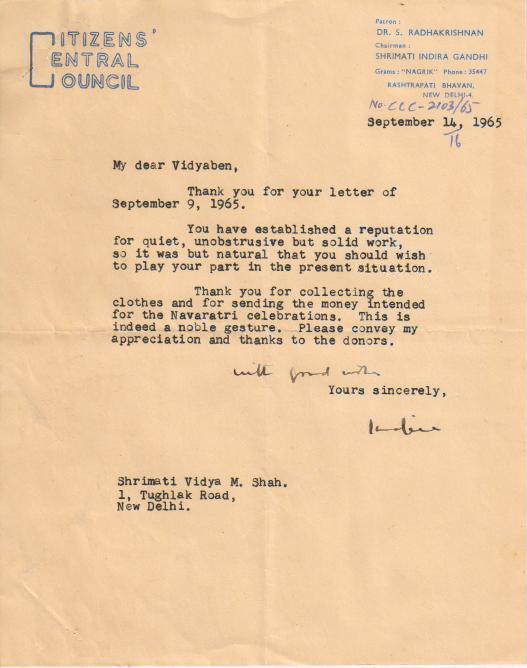
Other sectors
Vidyaben continues to be a Trustee of the Helen Keller Trust since 1980. During the United Nations "International Youth Year: Participation, Development and Peace" in 1985, she provided remarkable leadership and the various organisations which she was heading or was connected with carried out outstanding reconstructive work under her able guidance.
During 2008-14, Vidyaben was President of Samaj Pragati Sahayog (SPS), which is India’s largest grassroots initiative for water and livelihood security, working with its partners in 72 of India’s most backward districts, mainly in central tribal India. She continues to remain active in the work of SPS. In addition to contributing to the watershed programme of SPS, she has helped set up Self Help Groups of women for providing training in garment making and "women-only" agricultural activities from planting good quality seeds to reaping the harvest to marketing of the produce. She also helped initiate Anganwadi Centres for children in tribal areas covered by SPS in Madhya Pradesh. In this work she brought forth her love for rural India with which she was infused in her childhood spent in the villages of Thapla and Khodu in Saurashtra.
From 2005 to 2011, Vidyaben was a Member of the Ethics Committee for Medical Research on Cardiac Disorders appointed by the Indian Council for Medical Research. For several years until 2014, Vidyaben was Chairperson of the Bhagidari Scheme of Delhi Government. Since 2001, Vidyaben is a Patron of the India CIS Chamber of Commerce and Industry. Currently she is also a Vishisht Sahayogi of an Electricity Board in Delhi. For more than 15 years, Vidyaben was President and currently continues to be President Emeritus of the All India Kitchen Garden Association which encourages growing of vegetables and flowers using organic methods and following of healthy lifestyle and eating habits across Delhi and other States.
Vidyaben and Manubhai were involved with and helped institutions such as the Ramakrishna Ashram in Calcutta and Delhi and the Aurobindo Ashram in Delhi.
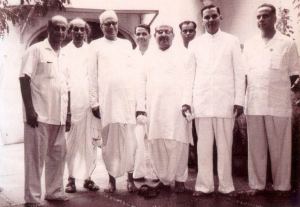
Residential Colony
When Manubhai left active politics, the family did not have a residence of their own and they also could not afford one. With the help of their daughter who had by then begun to work and had earnings, in 1976 they were able to acquire a house to live in. When Vidyaben moved with her family to the residential colony in East Delhi, as usual she brought her activism with her. She has worked tirelessly to improve civic amenities for residents of the Colony. A Community Centre was built by her determined efforts and with the help of other colleagues. She has also persisted in beautifying and maintaining many gardens and parks throughout the Colony. At 97, she still does not rest until a problem in the residential colony is fully resolved, be it to do with electricity failure or drainage or children abandoning old parents, showing the same enthusiasm and care as at the age of 11 when she was exhorting her schoolmates to follow the Gandhian principle of non-violence or at the age of 21 while living in a hostel she had become surrogate mother to many young girls from Africa who had been sent by their parents to study in Gujarat. In 2013, an award of "Maharani Ratna" was conferred on Vidyaben in recognition of her exceptional services to the colony as well as to the country and humanity at large.
References- ^ Kaushik & Sharma, (2005) Women's Rights and World Development, Sarup & Sons, New Delhi, p354.
Culture, Civics, Institutions What people said